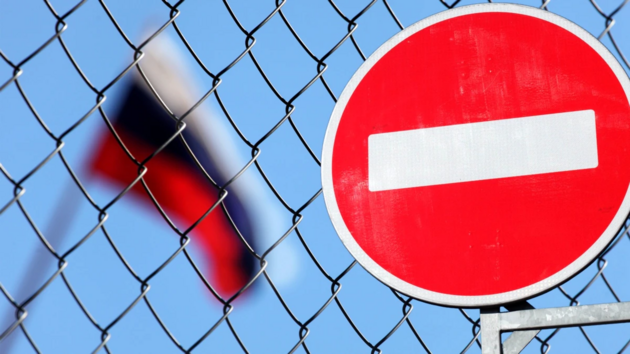The world has done a good job of diverting Russian oil supplies to Asia, and this is hurting the Kremlin.

The nearly total ban on Russian oil imports to the EU has finally hit Russia's oil revenues. Concerns that these revenues could provide the Kremlin with profits to finance its war against Ukraine have not been borne out — so far. Bloomberg writes about it.
The US administration feared that EU sanctions against the import of Russian oil by sea would lead to a sharp rise in prices. Of particular concern was the ban on providing ships and services such as insurance and financing for Russian cargo moving anywhere in the world.
To mitigate the consequences, the US proposed to set a price limit for Russian oil. Cargo purchased at a price below the cap, eventually set at $60 a barrel, would be exempt from the ban on supplies and services.
But it seems they needn't worry, at least not yet.
The last barrels of Russian oil have been shipped to European ports. Moscow lost the market for more than 1.5 million barrels per day. It seems that by the end of the year, the Russian Federation will lose another 500,000 barrels per day of sales if Poland and Germany fulfill their obligations to stop importing oil through pipelines.
However, oil prices not only did not soar, but also fell. By Friday, December 9, the fifth day of the import ban, Brent crude was below $77 a barrel and briefly dipped below $76. That's down more than 14% from the highs reached since the restrictions came into effect.
Crude oil prices fell even more. Russia's key export grade, Urals, traded at just over $40 a barrel in the country's Baltic ports, which remain Russia's biggest oil market. This roughly corresponds to the level defined as the break-even cost of production, but is well below the $60 per barrel price limit imposed by the EU along with the import ban.
The continued importance of Russia's Baltic ports even after Moscow's loss of the European market shows about the country's inability to redirect oil flows. The only pipeline to China and the Russian export terminal on the Pacific coast at Kozmino are already full, and the only way to supply the last remaining Russian markets in China, India and Turkey is by long sea voyages around Europe and through the Suez Canal.
< p>EU sanctions not only did not create a shortage of oil, but also led to local oversaturation of these markets.
Huge volumes of Russian oil compete with flows from traditional Middle Eastern suppliers, and sellers are forced to offer deep discounts to offset the high cost of the long journeys required to ship cargo from the Baltic region.
Meanwhile, Europe is not fighting for oil. Russia's invasion of Ukraine, which has caused inflation, rising food and energy prices, has undermined the economies of European countries to the point that the world can easily cope with the loss of Russian barrels, at least for now.
This may change in the coming months. China is easing its COVID-related restrictions, which could eventually boost demand for fuel, which has been squeezed by travel restrictions and a slowdown in economic activity. This will narrow the market again.
A potentially more dramatic EU ban on imports of Russian petroleum products such as diesel is also looming. That could undermine oil markets, which are already experiencing transportation fuel shortages.
Meanwhile, Russian President Vladimir Putin is threatening to cut oil production in response to price caps. At the same time, the oil industry of the Russian Federation can make a decision for him if it cannot sell oil profitably.
The Kremlin has already faced a major blow to its revenues from the export duty on crude oil. Based on oil prices since the middle of last month, Russia's per-barrel duty could well fall in January to its lowest level since the COVID-19 pandemic slashed revenues in early 2020.
So far, the world is doing well. with the redirection of Russian oil from Europe to Asia, and the costs, as Western capitals hope, will fall on the Kremlin.
Read also: Russian oil price ceiling: Russian media panic and count losses
As a reminder, December 5 the embargo on sea deliveries of oil from Russia to the European Union countries came into force, and the price limit for Russian oil, established by the EU, the G7 countries and Australia, came into force. In addition, the so-called insurance boycott of Russian oil began to operate – insurance companies are prohibited from providing services to companies whose tankers transport Russian oil in violation of the price limit.
Related video
Russia in response to these sanctions wants to set a minimum price for its oil, which is exported.
See special topic: By almost any measure, Putin is the main loser of 2022 – Atlantic Council Next year may to be the darkest for Putin during his entire reign. Air defense forces shot down all drones over Kyiv – Zelenskyi In Kyiv, residential buildings are slightly damaged by debris. Defenders neutralized more than 700 Russian invaders yesterday What is known about the losses among the equipment? The Kremlin is preparing to fire a number of odious officials: The Insider told who and for what The main reasons are failures during their work, revealed as a result of the start of a full-scale war against of Ukraine. The occupiers shelled the Kherson region 42 times, the head of the OVA was killed and wounded The enemy again struck the residential quarters of Kherson.



